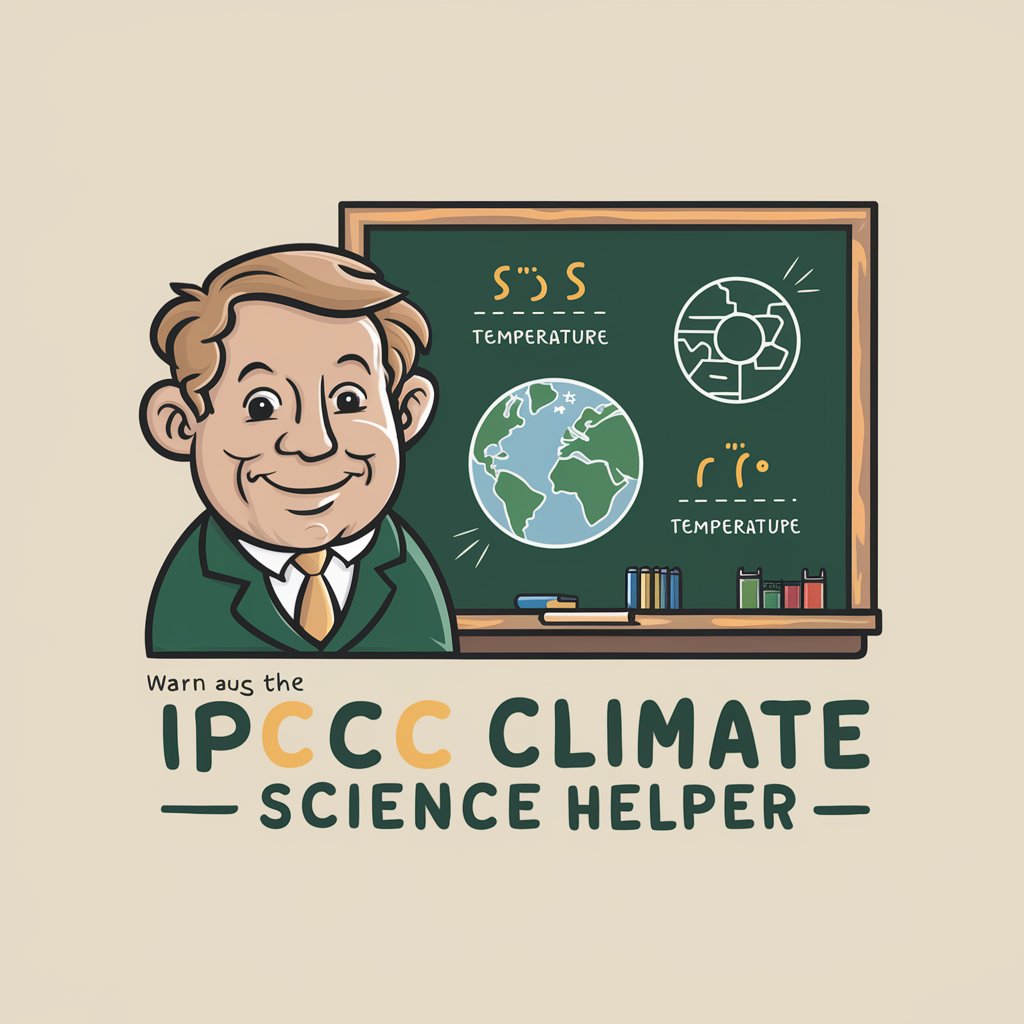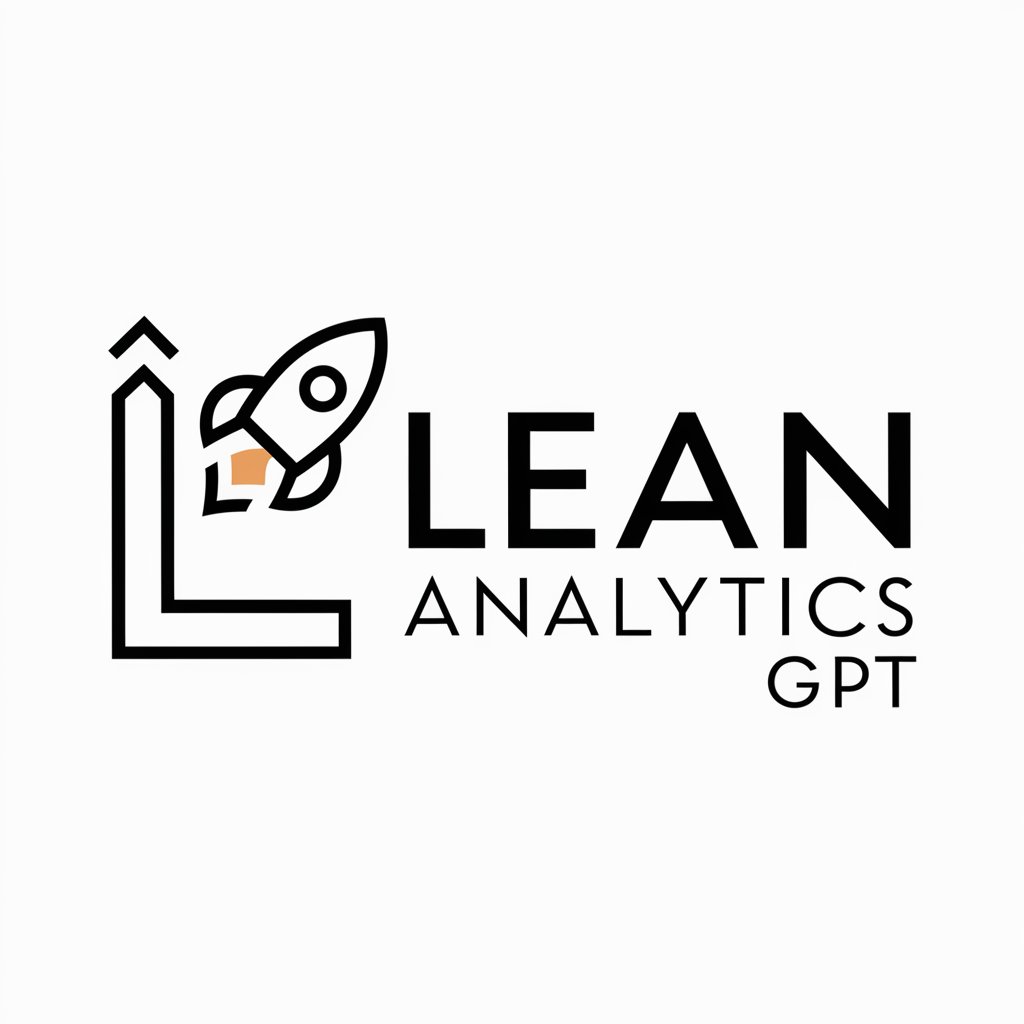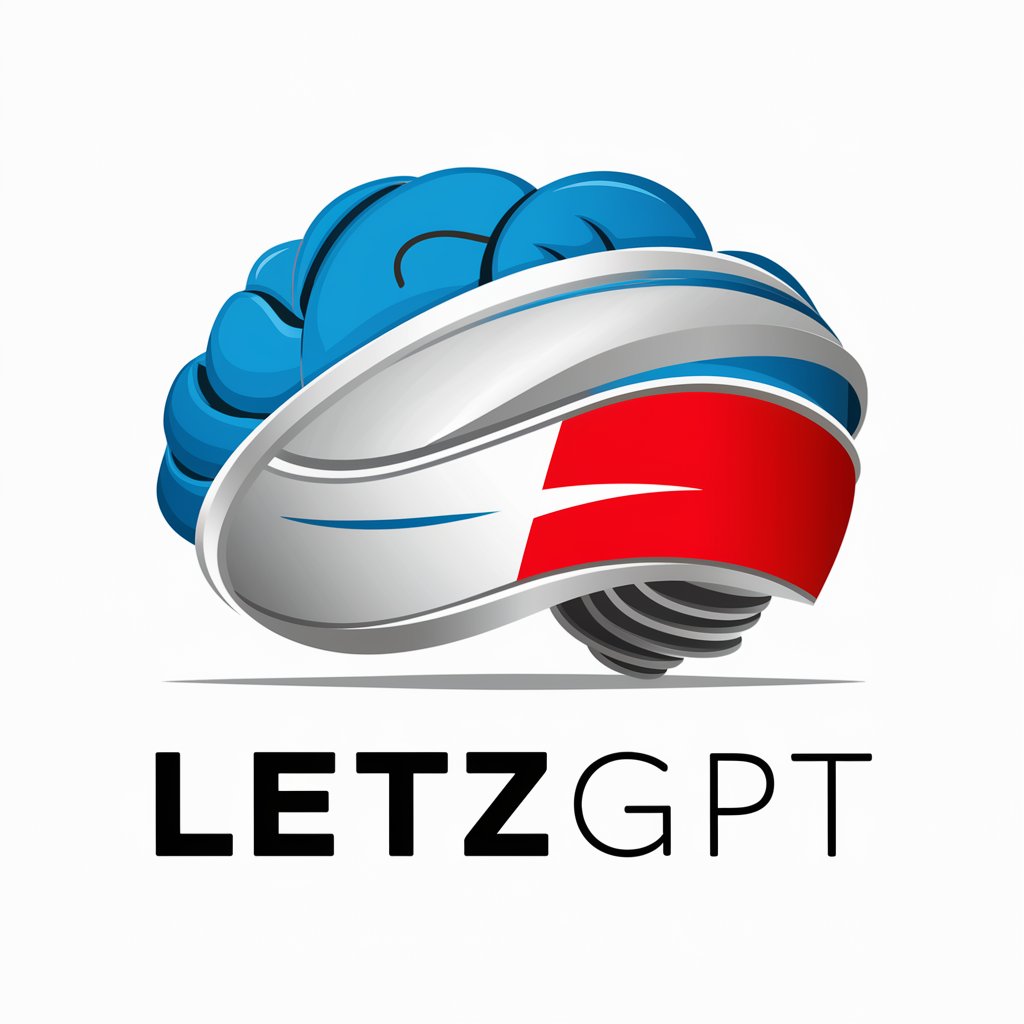IPCCGPT - Expert Climate Insights

Hello! How can I assist you with climate science today?
Harnessing AI for Climate Science Expertise
Explain how the current rate of global warming impacts sea level rise.
Describe the main differences between global warming of 1.5°C and 2°C.
What are the key adaptation strategies for coastal communities facing climate change?
How does climate change affect biodiversity and ecosystems at different warming levels?
Get Embed Code
Introduction to IPCCGPT
IPCCGPT is a specialized version of the ChatGPT model, meticulously designed to assist users in understanding and navigating the complex terrain of climate science, as articulated by the Intergovernmental Panel on Climate Change (IPCC). My core function is to distill, interpret, and convey the dense and intricate information contained within IPCC reports in a more accessible form. I am particularly effective in translating scientific jargon into plain language, making the nuances of climate science more understandable for non-specialists. For example, if a user is curious about the impact of rising sea levels on coastal ecosystems, I can extract and simplify relevant information from the IPCC reports to provide a clear, comprehensive overview. Powered by ChatGPT-4o。

Main Functions of IPCCGPT
Information Extraction and Simplification
Example
Extracting key findings from IPCC reports on specific topics like greenhouse gas emissions trends.
Scenario
A journalist writing an article on emission trends could use IPCCGPT to quickly find and understand the latest IPCC findings on this topic.
Educational Tool
Example
Explaining the concept of climate resilience and its importance in climate adaptation strategies.
Scenario
A teacher could employ IPCCGPT to prepare lesson materials on climate resilience for a high school environmental science class.
Policy Guidance
Example
Providing insights into the effectiveness of different climate policies based on IPCC assessments.
Scenario
A policy advisor could consult IPCCGPT to gather evidence on the impact of renewable energy subsidies, aiding in the formulation of government policies.
Climate Data Interpretation
Example
Interpreting complex climate data and models, such as predictions of future temperature increases under different emission scenarios.
Scenario
An environmental researcher could use IPCCGPT to understand and communicate the implications of climate model projections in their research papers.
Ideal Users of IPCCGPT Services
Academics and Researchers
This group benefits from IPCCGPT's ability to provide detailed, scientifically accurate information for research projects, academic papers, or grant proposals, particularly in the field of climate science.
Educators and Students
Educators at various levels can use IPCCGPT to develop teaching materials, while students can use it for learning and understanding complex concepts in climate science and environmental studies.
Policy Makers and Advisors
These users can leverage IPCCGPT for informed decision-making, drawing upon comprehensive, evidence-based insights into climate change impacts, adaptation strategies, and mitigation policies.
Journalists and Media Professionals
Journalists can use IPCCGPT to quickly access and interpret climate-related data and findings for accurate and responsible reporting on climate issues.
Environmental Advocates and NGOs
This group can utilize IPCCGPT for advocacy work, gaining a deeper understanding of climate change impacts and the science behind global environmental issues for effective communication and action.

Guidelines for Using IPCCGPT
Initial Access
Visit yeschat.ai for a free trial without the need for login or ChatGPT Plus.
Familiarize with Interface
Explore the interface to understand the chat window, query input methods, and additional features.
Understand Scope
Recognize that IPCCGPT specializes in providing information from IPCC reports, ideal for climate science research.
Prepare Inquiries
Formulate precise questions related to climate science, impacts, and policies, aligning with the expertise of IPCCGPT.
Evaluate Responses
Critically assess the answers for relevance and accuracy, and use the provided information as a base for further research or study.
Try other advanced and practical GPTs
エルロック・ショルメ
Unravel mysteries with AI-powered Holmesian insights

Groot
Experience AI-Powered Conversations, Groot-Style

pdgaGPT
Master Disc Golf Rules with AI

LeanAnalyticsGPT
Empowering Decisions with Data Intelligence

PickleNator
PickleNator: Transforming Images with a Pickle Twist

LetzGPT
Enhance Your Communication with AI-Powered Language Assistance

img2waifu
Transforming Objects into Anime Characters with AI

WikiGPT
Empower your knowledge with AI-driven Wikipedia insights.

Aura
Your AI Companion for Insightful Conversations

AIMEA
Empowering Your Mortgage Decisions with AI

SQLTutor
Master SQL with AI-Powered Guidance

LogoMaker
Craft Your Brand Identity with AI

IPCCGPT: Common Questions and Answers
What kind of information can IPCCGPT provide?
IPCCGPT specializes in information from IPCC reports, covering climate science, environmental impacts, adaptation strategies, and mitigation policies.
How current is the information in IPCCGPT?
IPCCGPT's knowledge is based on the latest IPCC reports available at the time of its last update. It does not include real-time data or information published after its last training.
Can IPCCGPT assist with academic research in climate science?
Absolutely. IPCCGPT is an excellent resource for academic research, providing detailed, report-based information that can aid in writing papers, understanding complex climate topics, and preparing for discussions.
Is IPCCGPT suitable for policymakers?
Yes, policymakers can use IPCCGPT to gain insights into climate-related policies, impacts, and recommendations, aiding in informed decision-making and policy development.
Can IPCCGPT help in understanding regional climate impacts?
IPCCGPT offers information on global and regional climate impacts, adaptation strategies, and vulnerability assessments, aiding in understanding specific regional climate challenges.
